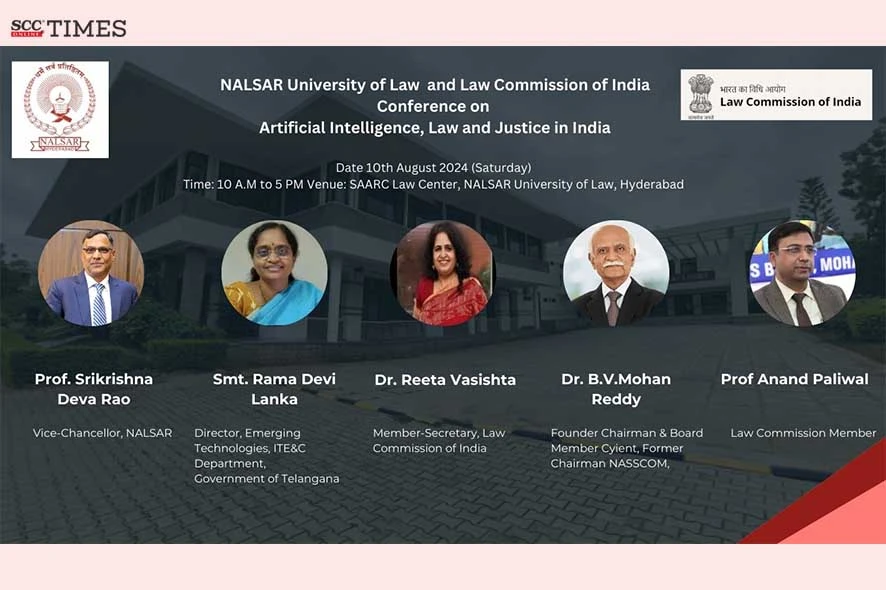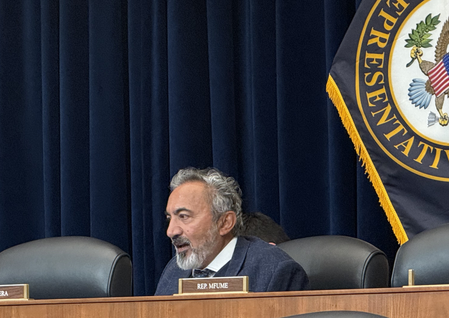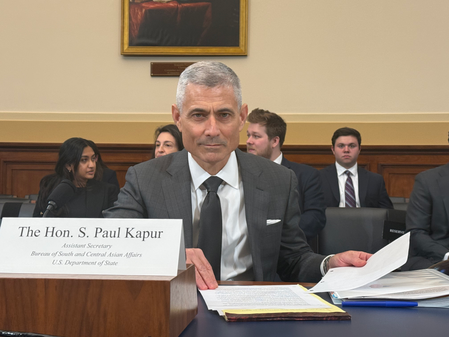
Hyderabad, Aug.11 (NSS): The NALSAR University of Law, in collaboration with the Law Commission of India, organised a one-day conference on Artificial Intelligence (AI), Law, and Justice in India. The event, held at the R. N. Jhunjhunwala Conference Hall at NALSAR, brought together experts from government departments, academia, legal tech, and industry to discuss the rapidly evolving intersection of AI and law.
The conference aimed to address the adoption of AI in the legal and judicial system, exploring its potential to transform law and justice in India. With the Supreme Court of India already utilizing AI-facilitated SUPACE and the integration of AI-based tools in the e-Courts Modernization Phase III, the conference delved into the opportunities and challenges presented by AI in the legal sector.
The conference featured two sessions, “AI in Law and Justice in India: Present and Future” and “AI and Principle of Justice & Implications for Justice (Chat GPT, Generative AI, and Emerging Trends).” Eminent speakers, including Rama Devi Lanka, Director of Emerging Technologies in the Department of Information Technology, Electronics & Communication of the Government of Telangana, and Dr Reeta Vasishth, Member-Secretary of the Law Commission of India, shared their insights on the impact of AI on law and justice.
The conference highlighted the need for a robust legal framework to address challenges like data privacy and AI ethics. Speakers emphasised the importance of multidisciplinary education and continuous learning to keep pace with the rapid advancements in technology. The event also underscored the importance of transparency, trust-building, and regular audits in addressing concerns around AI hallucinations, bias, and the loss of human empathy.
This conference is one of several initiatives that NALSAR is taking on the theme of AI, law, and justice. The university is working with UNESCO on AI and its use by the judiciary and is developing courses in Responsible AI with the Center for Responsible AI (CeRAI), IIT-Madras.








